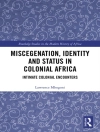Until recently, historians tended to stress the perceived technological and ecological shortcomings of medieval agriculture. The ten essays assembled in this volume offer a contrary view. Based upon close documentary analysis of the demesne farms managed for and by lords, they show that, by 1300, in the most commercialized parts of England, production decisions were based upon relative factor costs and commodity prices. Moreover, when and where economic conditions were ripe and environmental and institutional circumstances favourable, medieval cultivators successfully secured high and ecologically sustainable levels of land productivity. They achieved this by integrating crop and livestock production into the sort of manure-intensive systems of mixed-husbandry which later underpinned the more celebrated output growth of the seventeenth and eighteenth centuries. If medieval agriculture failed to fulfill the production potential provided by wider adoption of such systems, this is more appropriately explained by the want of the kind of market incentives that might have justified investment, innovation, and specialization on the scale that characterized the so-called ‘agricultural revolution’, than either the lack of appropriate agricultural technology or the innate ‘backwardness’ of medieval cultivators.
Bruce M.S. Campbell
Medieval Antecedents of English Agricultural Progress [PDF ebook]
Medieval Antecedents of English Agricultural Progress [PDF ebook]
购买此电子书可免费获赠一本!
语言 英语 ● 格式 PDF ● 网页 368 ● ISBN 9781000941630 ● 出版者 Taylor and Francis ● 发布时间 2023 ● 下载 3 时 ● 货币 EUR ● ID 9044824 ● 复制保护 Adobe DRM
需要具备DRM功能的电子书阅读器












